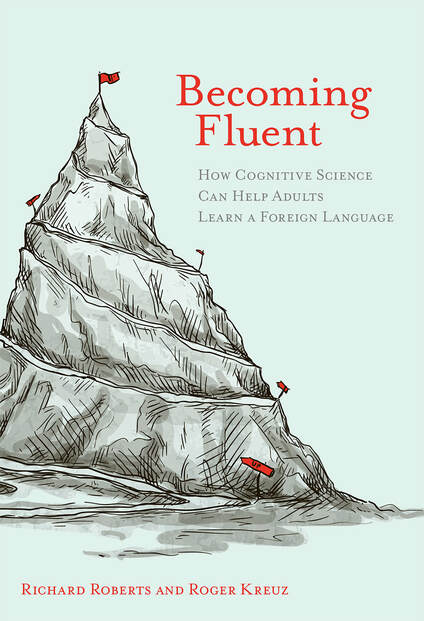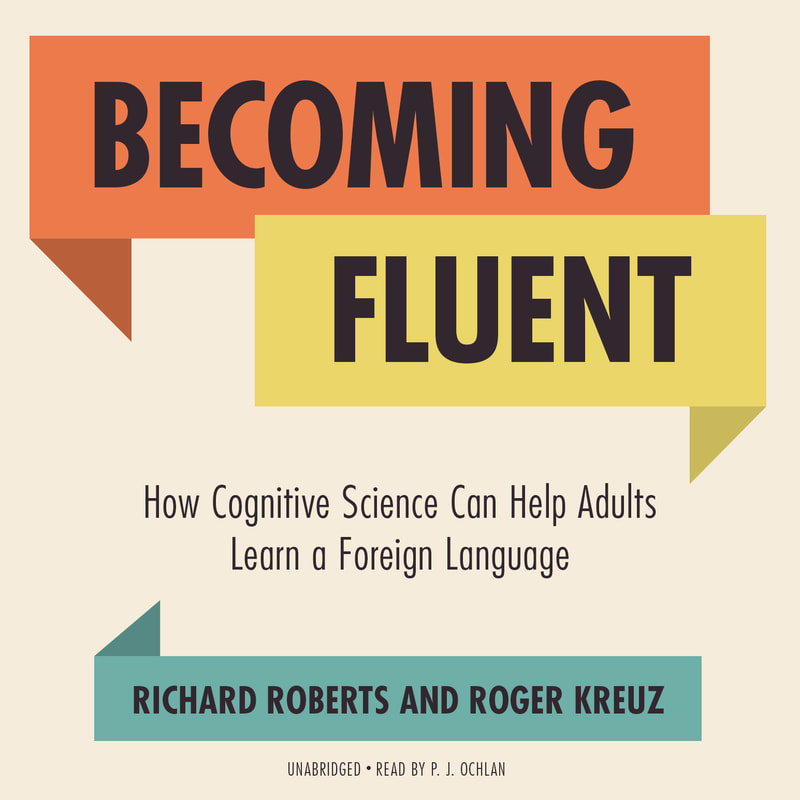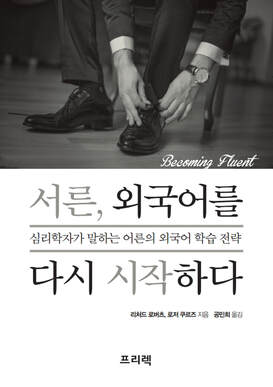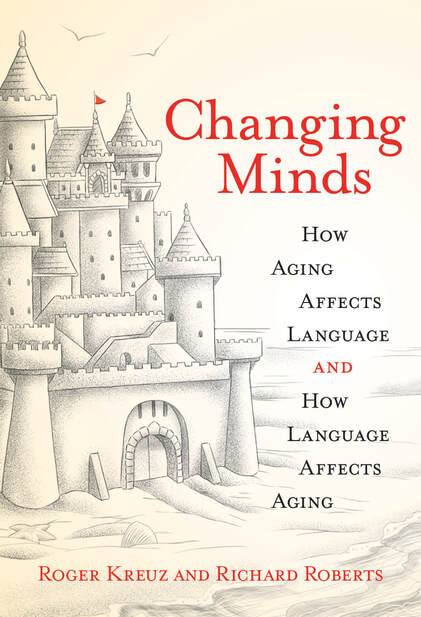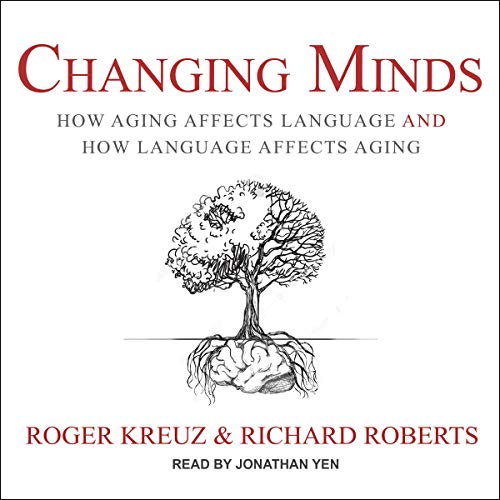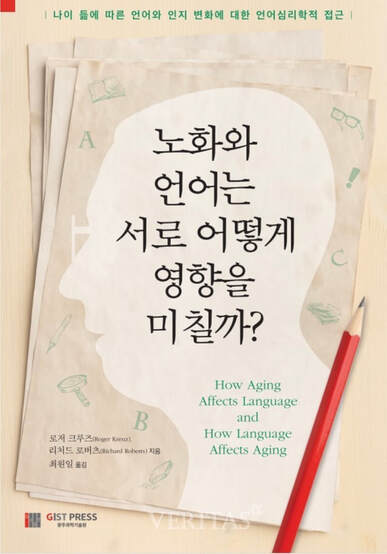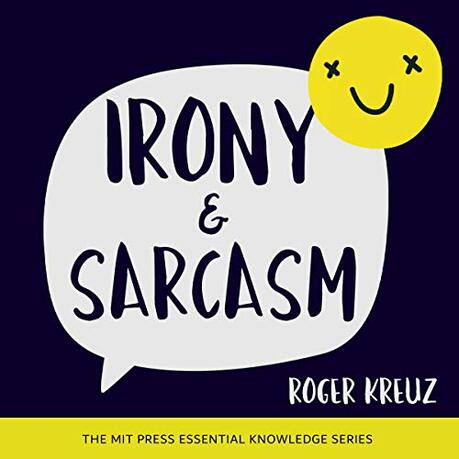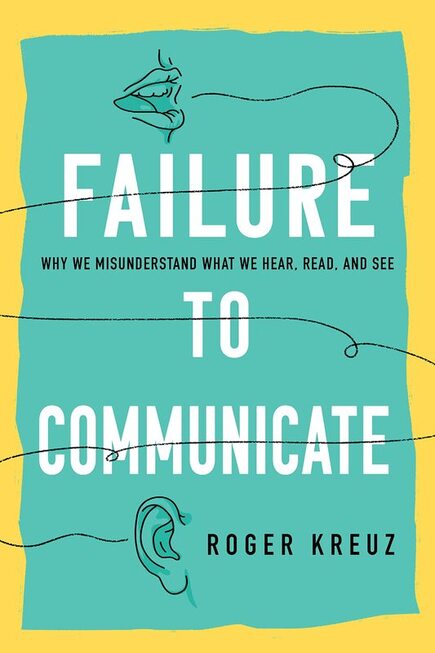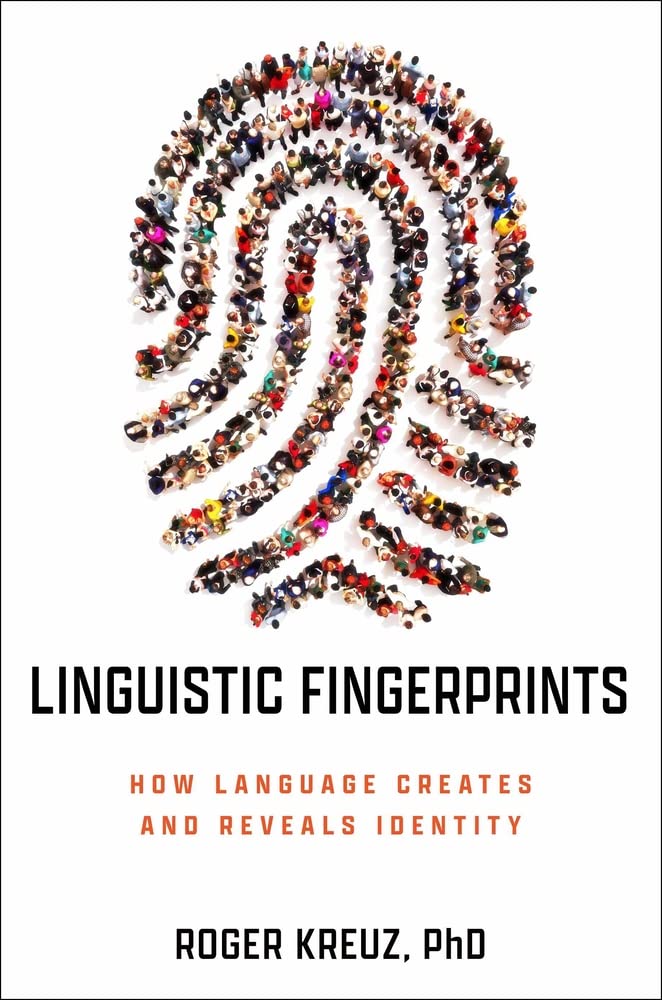|
Click on images for more information
|
EndorsementsThere are many books about language learning in general, but it's great to finally see this scientifically sound account of second language acquisition. I was constantly nodding my head at things that I know to be true as an experienced language learner and coach to language learners, explained in a no-nonsense way drawing on many valid sources. Recommended for people who want to know the facts about adult foreign language acquisition. —Benny Lewis, author of Fluent in 3 Months
"Becoming Fluent" is written by cognitive psychologists who lucidly demonstrate how adults can successfully learn a foreign language by utilizing strategies based on reliable cognitive science and educational psychology research. The reader will understand how and why he or she can master a new language―an insight unrealized in previous texts. —Timothy Jay, author of Why We Curse
This is a one-of-a-kind book that will give adult language learners the confidence they need to start or continue studying a foreign language. Engagingly written chapters draw on the authors' personal experiences and findings from cognitive science to illustrate why language learners experience problems and explain what they can do to overcome them. —Susan Fussell, Cornell University
|
|
Click on the cover for more information
|
EndorsementsWhat a pleasure and surprise to read this wonderfully accessible volume on cross-cultural language use! The fact is that in this increasingly globalized and transnational world, nothing could be more important than knowing―more than what to say and when―what NOT to say and why not. The authors write about timely issues from the perspectives of their own cross-cultural and cross-linguistic lived histories. —Diana Boxer, University of Florida
Kreuz and Roberts provide a thoughtful and engaging introduction to the challenges of interaction across language barriers, packed with insights that will be valuable to all who find themselves talking at times to people from other linguistic communities. —Susan Fussell, Cornell University
|
|
Click on images for more information
|
|
|
Click on images for more information
|
Named as one one of Choice's Outstanding Academic Titles for Words and Language, 2021
ReviewsAn enlightening and concise overview of the life and times of irony and sarcasm. —Library Journal Reviews
Kreuz incorporates voices as diverse as Sophocles, Cicero, O. Henry, Henry Watson Fowler, David Foster Wallace, George Carlin, and Alanis Morissette. Kreuz builds out the basics of metaphor and speech act theory with current research on the identification of sarcasm, the sarcastic tone of voice, sentiment analysis, and memes. Kreuz’s engaging style makes the exposition easy to follow despite the slipperiness of the titular concepts, and in the endmatter he includes a useful glossary and suggestions for further reading. Billed as a “biography of two troublesome words,” this is a wonderful resource for anyone interested in language, rhetoric, and cultural studies. —E. L. Battistella, Choice Connect
|
|
Click on the cover for more information
We are exposed to the dangers of miscommunication early in life. As children, we play the Telephone Game and learn an important lesson about the fragility of long communication chains. And as adults, we are constantly on the lookout for misunderstanding. People interrupt each other, on average, about every ninety seconds in order to check their understanding. Despite such vigilance, however, a great deal of what is said and written is not understood as intended.
Miscommunication has led to military defeats, the loss of spacecraft, and—even more tragically—airplane crashes and other accidents. It plays a role in road rage and social media feuds. It haunts the courtroom, the boardroom, and the singles bar. FAILING TO COMMUNICATE includes dozens of such examples and explains them in light of what researchers have discovered about how communication works—and why it so often fails. |
|
|
Click on the cover for more information
How much of ourselves do we disclose when we speak or write? A person’s accent may reveal, for example, whether they hail from Australia, or Ireland, or Mississippi. But it’s not just where we were born—we divulge all sorts of information about ourselves and our identity through language. Level of education, gender, age, and even aspects of our personality can all be reliably determined by our vocabulary and grammar. To those who know what to look for, we give ourselves away every time we open our mouths or tap on a keyboard.
But how unique is a person’s linguistic identity? Can language be used to identify a specific person? To identify—or to exonerate—a murder suspect? To determine who authored a particular book? The answer to all these questions is yes. Forensic and computational linguists have developed methods that allow linguistic fingerprinting to be used in law enforcement. Similar techniques are used by literary scholars to identify the authors of anonymous or contested works of literature. |
Many people have heard that linguistic analysis helped to catch the Unabomber, or to unmask an anonymous editorialist—but how is it done? LINGUSISTIC FINGERPRINTS will explain how these methods were developed and how they are used to solve forensic and literary mysteries. But these techniques aren’t perfect, and the book will also include some cautionary tales about mistaken linguistic identity.
EndorsementsA must-read book for all persons having an interest in language or linguistics. —Jacques Savoy, University of Neuchâtel
Do we leave behind linguistic fingerprints when we communicate? Does how we talk or write reveal who we are? The question has been posed for centuries, from the enigma of Shakespeare to that of Satoshi. Prof. Kreuz leads us on a rich historical journey into present-day methods using corpus analysis and machine learning. “Linguistic Fingerprints” offers captivating vignettes of failures, successes and lingering mysteries of stylometry. —Rick Dale, University of California, Los Angeles
Smartly-written, entertaining and informative, Linguistic Fingerprints is a fascinating exploration of quests—both successful and otherwise—to identify authors by their writing. —Ros Barber, Goldsmith’s, University of London
A delightfully engaging read! From hand counting to machine learning, Linguistic Fingerprints explores the fascinating world of stylometry with lucidity and insight. Kreuz’s new book is a must-read for anyone interested in what language use unconsciously reveals. —Katie Muth, Durham University
|
